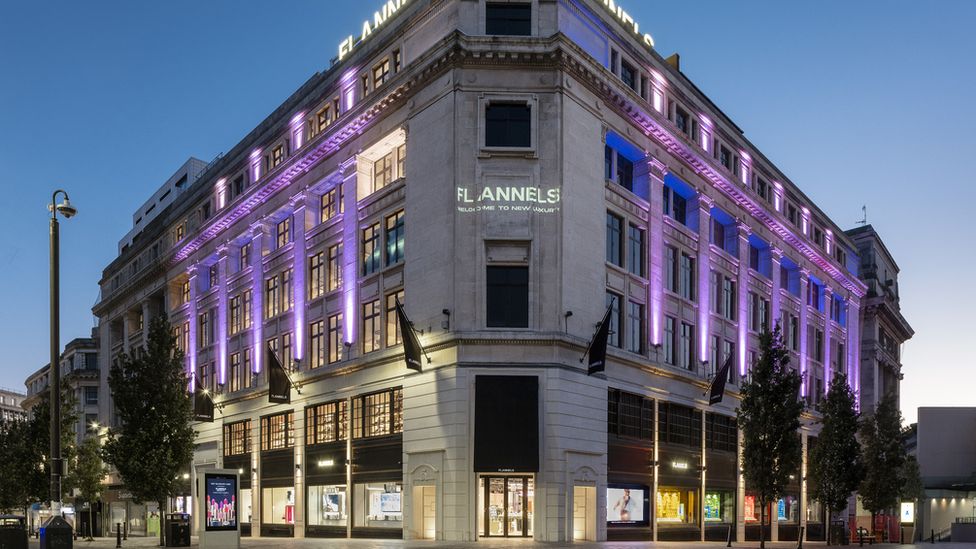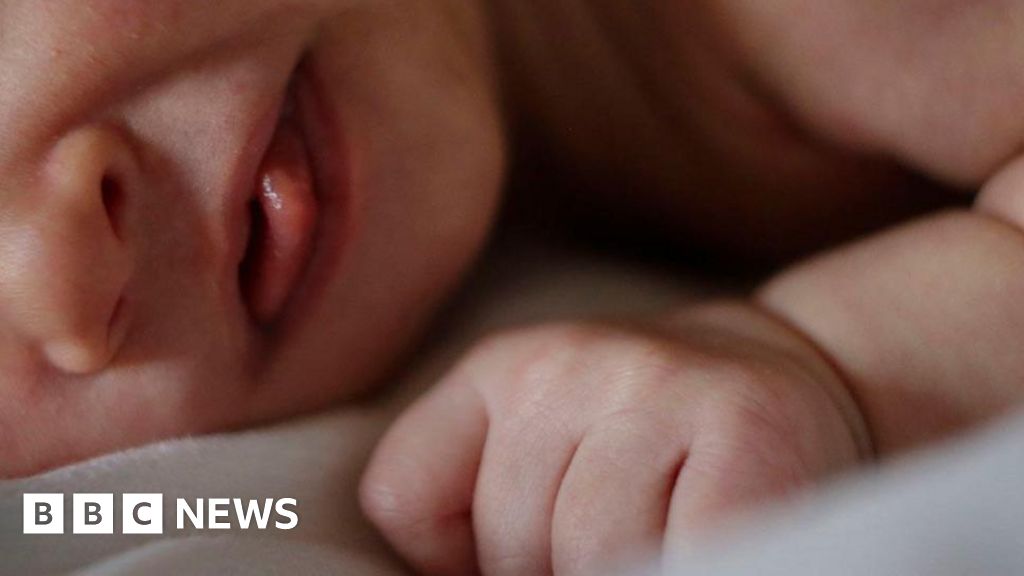ARTICLE AD BOX
 Image source, Joás Souza
Image source, Joás Souza
By Lucy Hooker
Business reporter, BBC News
In June, months into a cost-of-living crisis that was only set to get worse, a vast new department store opened in Liverpool's city centre.
Housed in a traditional Georgian exterior, Flannels' new seven-floor extravaganza boasts the traditional department store fare: a beauty hall, a host of clothing brands, and three restaurants including a roof terrace.
Flannels, part of Frasers Group, is one of a surprising number of brands expanding on the UK's high streets.
The past couple of years has felt like battle after battle for retailers. Not only the Covid pandemic, but the soaring cost of energy, staff shortages and rising wage bills made business tough. That has been topped off by an economic downturn, that is prompting shoppers to rein in their spending and rail strikes that are keeping them at home.
As a result there were a series of high profile failures in 2022 including Made.com, Sofa Workshop, M&Co and Joules.
Yet Frasers Group, which also owns Sports Direct, is turning a strong profit under a new chief executive, and opened 12 new Flannels stores in 2022, with further sites planned, including in Blackpool and Leeds.
Others are defying the downturn too. Monsoon, which went into administration in the first lockdown, is back on its feet and opening 22 new shops. Marks & Spencer, is opening new branches as well as closing some, as part of a shake up aimed at creating fewer but better main stores. And new independent shops are popping up in many towns and cities.
Even the brands that went under in 2022 have for the most part been snapped up by bigger chains that believe they still have commercial potential.
The year ended with what felt like the first normal Christmas since Covid struck.
"We've seen a resurgence in the high street, people wanting to get back to Christmas shopping, Christmas traditions, seeing the lights and going into physical shops," says Catherine Shuttleworth, founder of retail analysis firm Savvy Marketing,
Image source, Primark
Image caption,Primark partnered with Greggs to create a Christmas jumper
The cost of living crisis has put huge pressure on retailers to keep prices low, but that isn't bad news for everyone.
Primark and Poundland - another two chains rolling out new branches - are among those reaping the rewards of a trend to "trade down" or shop somewhere less expensive than usual.
Both of those brands are also getting it right when it comes to their social media strategies, says retail expert, Kate Hardcastle, by treating shoppers more like music fans, than customers.
Primark's tie-up with Greggs to produce Christmas jumpers with sausage rolls on them, promoted by the singer Lewis Capaldi, prompted a lively response online. Even without its own online sales operation, Primark boasts more followers than most of its rivals, and its website crashed last month when it made its first moves into offering click and collect.
Poundland has more than half a million followers on its Facebook group, showing off what it has in store and encouraging shoppers to comment on products, join in challenges and chat among themselves.
As a strategy, it's a far cry from: turn up and we'll serve you, points out Ms Hardcastle. It's a different mentality, she says, a more humble one that says: "We know we can't survive without you."
Know your market
Increasing numbers of brands are getting this right, especially among small independent retailers, like the hot chocolate chain Knoops, which has opened seven branches across the south-east of England and plans to double that.
Targeting the more affluent end of the market with its £3.50 made-to-order hot chocolates, it also aims to please its "audience" online by engaging with customers' comments, posting videos, mini-polls, and posting regular product news about its single origin chocolates.
Image source, Knoops
Image caption,At Knoops customers select a chocolate from the menu to form the base of their customised drink
But coping with the downturn is also about knowing your market, says Natalie Berg, founder of NBK Retail.
"Those retailers that have a very clear understanding of what the brand stands for, who it is targeting, do really well," she says.
Flannels is aiming its "new luxury" expressly at the younger shopper, with an in-house bootcamp, a beauty room where you can try out products, and Botox treatment available on-site.
The big name designer wares sold within Flannels stores is Frasers Group's way of buying its way into premium lifestyle, seen as a recession-proof segment of the market, says Ms Berg.
"It's targeting a younger demographic who are a bit more insulated from inflationary pressures," she says.
Flannels represents Frasers' version of what a modern day department store looks like for the under-30 shopper, says Ms Shuttleworth.
She believes what makes the group successful is that it understands the emerging shopper better than some of its established rivals.
"They get how shopping in real life works in a world of social shopping and that by offering the right products in the right environment they can woo shoppers back," she says.
Even Marks & Spencer, which for years was accused of not knowing who it was aiming to please, seems to be getting that right now, says Ms Berg.
"It's clear they are going after young families, a demographic that has potential. That strategy is paying off," she says.
But M&S has also benefited from the clear out of other department stores like BHS and Debenhams, says Ms Shuttleworth.
"They're the last man standing," she says, which means they can scoop up extra trade.
Another brand doing "tremendously well" is Next, she adds, hoovering up brands, like Joules and Made.com that have gone under, selling their products on their own "marketplace".
Evolution
"It's not all a rosy picture," says Ms Shuttleworth. Already shoppers are trying to avoid spending on things that aren't essential, a trend that she thinks will intensify in the new year.
In January, shops that offered big discounts to draw in shoppers in the run up to Christmas will tot up their takings and not all will survive.
Ms Hardcastle agrees that there will be a "horrible few months ahead" as retailers discover where they stand.
But she also sees signs that landlords are becoming more flexible on rents for sites that have been standing empty, and hopes this heralds better times to come.
"We're starting to go through what is an incredibly painful but exciting process," she says, one she believes will lead to greater variety on our high streets.
Natalie Berg agrees: "I think essentially what we're seeing is retail Darwinism, survival of the fittest. With crisis comes opportunity."

 2 years ago
36
2 years ago
36








 English (US) ·
English (US) ·